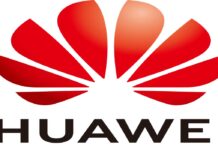National Identification and the Fight Against Insecurity In Nigeria
By Inyene Ibanga
TECH DIGEST – The Federal Ministry of Communications and Digital Economy jolted GSM subscribers back to reality when it ordered Mobile Network Operators (MNOs) to block all Subscriber Identification Modules (SIM) cards without valid National Identification Numbers (NIN) after December 30, 2020.
Issuing the directive, the Communication and Digital Economy minister, Dr. Isa Pantami, explained that the decision was arrived at during a meeting of key stakeholders in the communications industry following the earlier directive on the suspension of new SIM registration by network operators.
A statement by the Nigerian Communications Commission (NCC) added that the stakeholders agreed on the need to consolidate the achievements of last year’s SIM registration audit to help improve the performance, protection and sanity of the sector.
In furtherance of the resolution, the stakeholders endorsed the deployment of urgent drastic measures as inevitable for the improved integrity and transparency of the identity authentication of citizens and to support the Federal Government’s effort at tackling insecurity in the country.
Therefore, operators must require their subscribers to provide valid NINs to update SIM registration records before December 30, 2020, after which all SIMs without NINs would be deactivated from the networks.
This decision elicited a groundswell of angst from GSM subscribers who viewed the directive as a deliberate policy to unleash untold suffering on them, especially considering the galloping prevalence of COVID-19 infection, and the bitter experience many passed through in the effort to enroll for the national identity number at the National Identity Management Commission (NIMC) offices.
Understandably, the directive threw subscribers into panic mode: Apprehension and anxiety degenerated into pandemonium, which gave room for so-called agents of NIMC to exploit the desperation of many potential enrollees and make them part with money in order to secure the NIN.
Hundreds of young, old, and even vulnerable elderly citizens besieged every available office of the Commission in the bid to beat the December 30 deadline.
Actually, the major challenge surrounding the directive was those GSM subscribers that had not registered with NIMC. For them, it is an impossible task for the Commission to accomplish because of its inability to perform as expected.
Established under the NIMC Act, 2007, the Commission was set up to create, manage, maintain and operate a unified National Identity Database through the enrolment of eligible citizens for the NIN. The NIMC Act provides that the registration and procurement of a National Identity Card is free and compulsory for all registrable persons in Nigeria.
The Commission has so far registered around 43 million eligible enrollees, while many GSM subscribers are expected to be captured under the current exercise. The NIMC is within its powers to do all of these.
But Nigerians have very little or no confidence in the ability of NIMC to successfully handle the upsurge in the number of enrollees seeking to secure the NIN. Previous exercises by the Commission have left a bitter taste in the mouth of citizens who suffered great trouble to register for the national identity card but are still waiting to get their cards more than five years after registration.
Read Also:
Little wonder, Nigerians praised the presidential approval which transferred NIMC to the Federal Ministry of Communications and Digital Economy to ensure that synergy and an effective ministerial supervisory mechanism is instituted for effective coordination, monitoring and tracking of the implementation of the Federal Government’s digital transformation initiatives.
The Federal Government places a significant value on the critical role of NIMC towards the realisation of the objectives of the National Digital Economy Policy and Strategy (NDEPS) for a Digital Nigeria. Thus, President Muhammadu Buhari’s approval for the transfer is testimony to the unprecedented performance of the minister of Communications and Digital Economy.
Interestingly, following the initial uproar over the short deadline given for MNOs to link subscribers’ NINs to their SIMs and other issues arising, the Federal Government has come up with several strategies to ease the burden, both on the NIMC and Nigerian citizens.
For starters, the Federal Government announced the licensing of 203 enrolment agents, comprising the organised private sector, state governments/public sector institutions, mobile network operators and non-governmental organisations. This is to increase the number of enrolment centres in the country, integrate multiple players into the sector, and scale up enrolment and issuance of the NIN to Nigerians to achieve an enrolment figure of about 200 million within the next five years.
In all of these, government ordered the immediate stoppage of the N20 NIN retrieval charge for SIM registration collected by mobile network operators, as it declared that the process was free.
It extended the deadline by three weeks, from December 30 to January 19, 2021, for subscribers with NINs to link these with their SIMs, while a six-week extension, from December 30th to February 9th, 2021, was granted to subscribers without NINs to enable them enroll at NIMC offices across the country.
Additionally, the Commission introduced a Number-Issuing Queue Management system for NIN applicants to ensure orderliness and strict adherence to COVID-19 protocols, particularly the mandatory wearing of face masks, washing of hands, and observance of social (physical) distancing, while at their centres nationwide.
Undoubtedly, the problem of overcrowding at enrolment centres remains the biggest challenge that must be given urgent attention by the authorities. As such, it is imperative for government agencies to do the needful by opening more registration centres across the country to address overcrowding.
This much was amply demonstrated by the National Information Technology Development Agency (NITDA), when its director-general, Kashifu Inuwa Abdullahi provided a model ICT centre to address concerns pertaining to the overcrowded NIMC centre in Dutse, the Jigawa State capital.
Apart from helping to reduce the burden on the identity card registration, the centre will also enable individuals to undergo training on JAMB and WAEC examinations, alongside other information technologies.
While hailing NITDA for the patriotic gesture, Nigerians are optimistic that the agency would replicate similar facilities in other parts of the country in the spirit of strengthening nation unity and identity.
It is against this background that many Nigerians would greatly appreciate any federal/state government agency that contributes to increasing the number of identity card registration centres and expands coverage across the country.
All tiers of government should support the national identity card project by contributing facilities, infrastructure and other resources necessary to help distinguish the bona fide and law-abiding Nigerian citizens from the impostors that are presenting a bad image for the country.
This opportunity to create a centralised national identity management system might just be the game changer for tracking and unveiling the real identity of terrorists, bandits, kidnappers and other criminals perpetrating mayhem all over the country.
Inyene Ibanga, is Managing Editor Techdigest.ng and writes from Wuye District, Abuja.




















